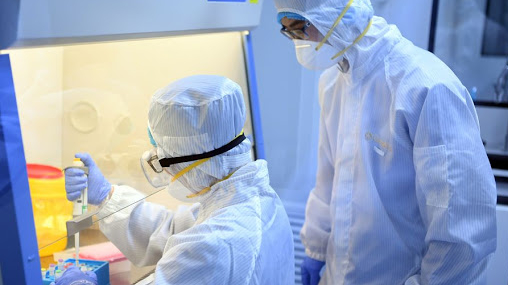CGTN | Opinion 10:20, 26-Feb-2020
COVID-19 won't decouple global trade
Zhao Hai

Editor's note: Zhao Hai is a research fellow at the Institute of World Economics and Politics, Chinese Academy of Social Sciences. The article reflects the author's views and not necessarily those of CGTN.
Despite the growing confirmed cases of COVID-19 around the world, the World Health Organization (WHO) declared on Monday that it is "not a pandemic." Still, global financial markets tanked as a result of the concerns about the virus. The real and potential disruption to the global economy, both production and consumption, is an indisputable common challenge that all countries must face.
With so many people suffering, the world aspires to unity and cooperation, not to gain undue economic benefit, play power politics or bicker. Yet, the Financial Times (FT), in an opinion piece published on February 23, asserted the virus crisis could decouple the global trade after analyzing its consequences on the world's second-largest economy.
The conclusion does not hold water. Admittedly, factories are shuttered, and supply chains are stalled in China, and since Wuhan is the central logistics hub to China's transportation, the problem is hard to fix. However, temporary rearrangement of the supply chain is not equal to the "decoupling" of global trade.
China has been striving to balance between the fight against the virus and the resumption of production in less virus-affected regions. This will help restore the global supply chain. Although global trade has seen a reduction in Chinese consumers, this issue will be immediately addressed after the virus is effectively controlled.
Then, what would be the reason for the decoupling? For the writer of the opinion piece, "Beijing's opacity in handling the epidemic highlights the risks of doing business in China," and this will speed up the decoupling of global trade.
China has already put tremendous effort and taken unprecedented measures to fight against the virus, but the piece ignores China's effort and sacrifice, which have been recognized and applauded by the WHO and many countries.
The article sticks to the American "decoupling" cliché. Taking Huawei as an example, it asserts that China's technology could pose a threat to Western liberal and democratic values. This is typical Cold War mentality.
The novel coronavirus outbreak is a tool used by those harboring a Cold War mentality and advocating economic nationalism to hype the decoupling of global trade. For instance, U.S. Commerce Secretary Wilbur Ross said earlier that the virus will "help accelerate the return of jobs to North America." Ross was heavily criticized for such a view.
In an interview with CNBC, Curtis Chin at the Milken Institute said, "The coronavirus more than the trade war has sped some of the decoupling, as countries and businesses think about their supply chain for the long run." Fox News said in an opinion piece that industries and countries are "rethinking whether they need to decouple from China" with the U.S. travel restrictions and Chinese factories shutdown.
The White House trade adviser Peter Navarro also warned that U.S. medical supplies might be affected by the virus outbreak in China and urged drug companies to "buy American" and reduce their reliance on imports.
Such a cacophony bets on one thing: Neither China nor the global supply chain is resilient enough to weather the impact of COVID-19. If the SARS outbreak in 2003 is any indication of what would happen hereafter, people should bet the opposite.
COVID-19 is a global public health crisis. It has nothing to do with territorial boundary, ideology, civilization, race or power. It threatens us all; therefore, it should unite us all. It will not result in the decoupling of global trade. Instead, it will speed up global cooperation in virus control and public health governance.
(If you want to contribute and have specific expertise, please contact us at opinions@cgtn.com)